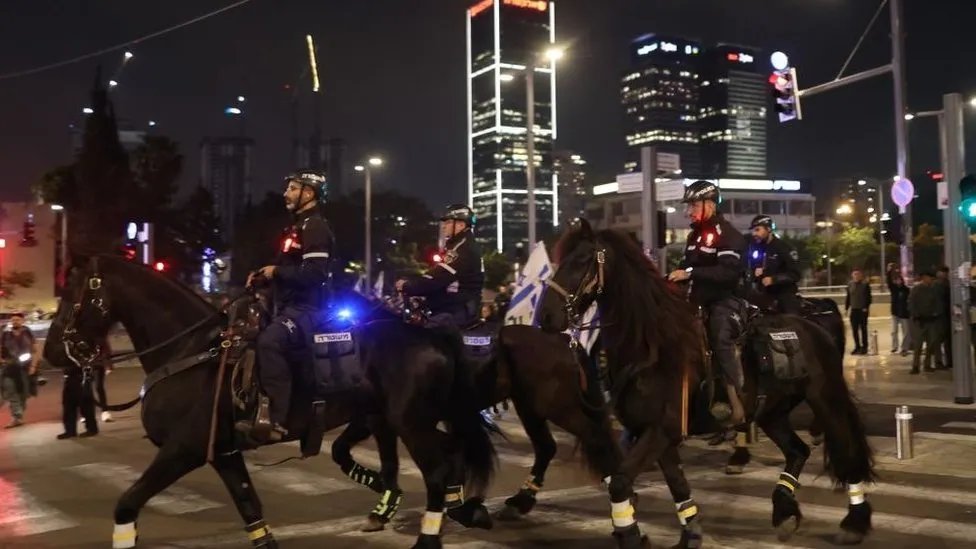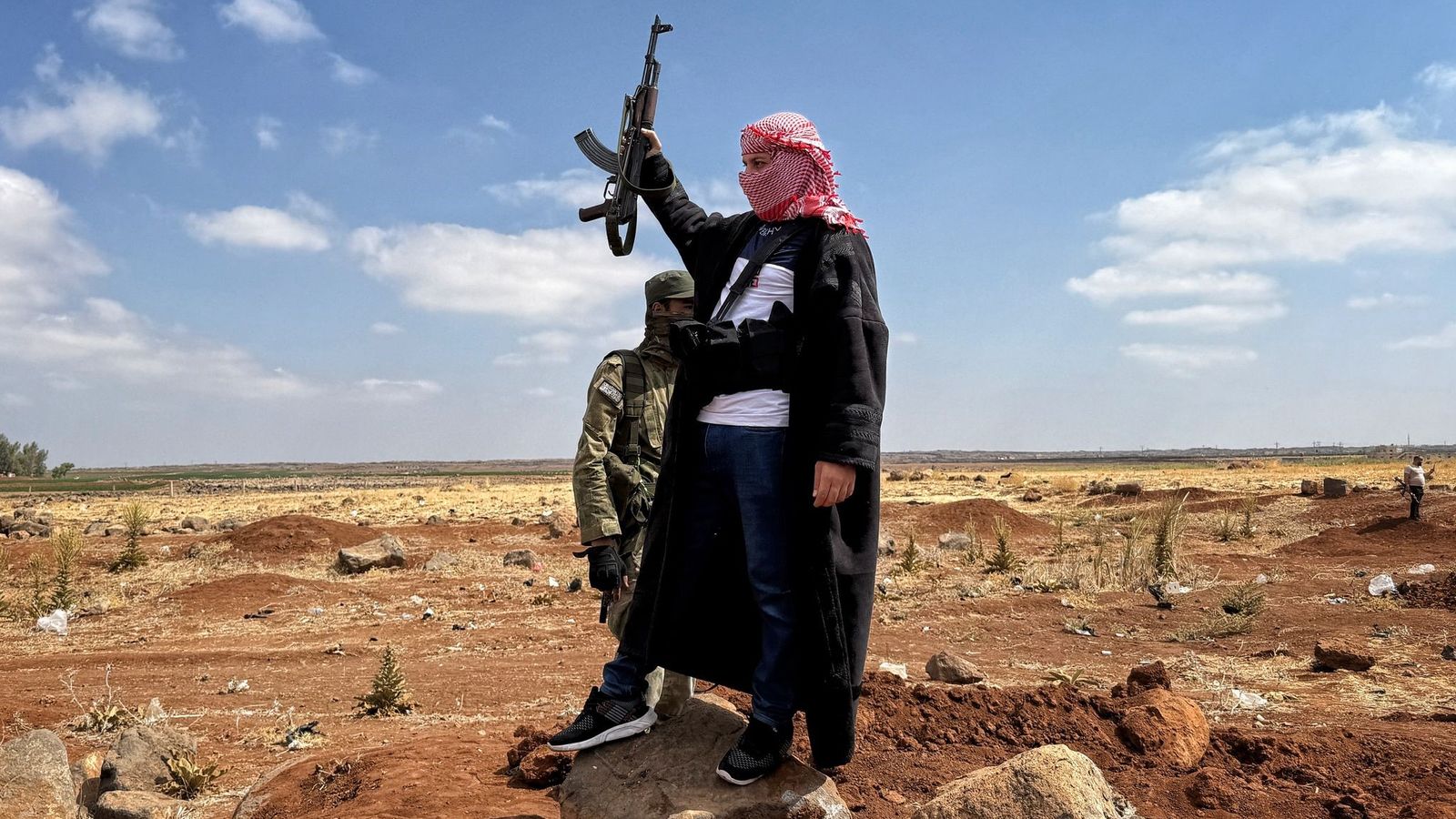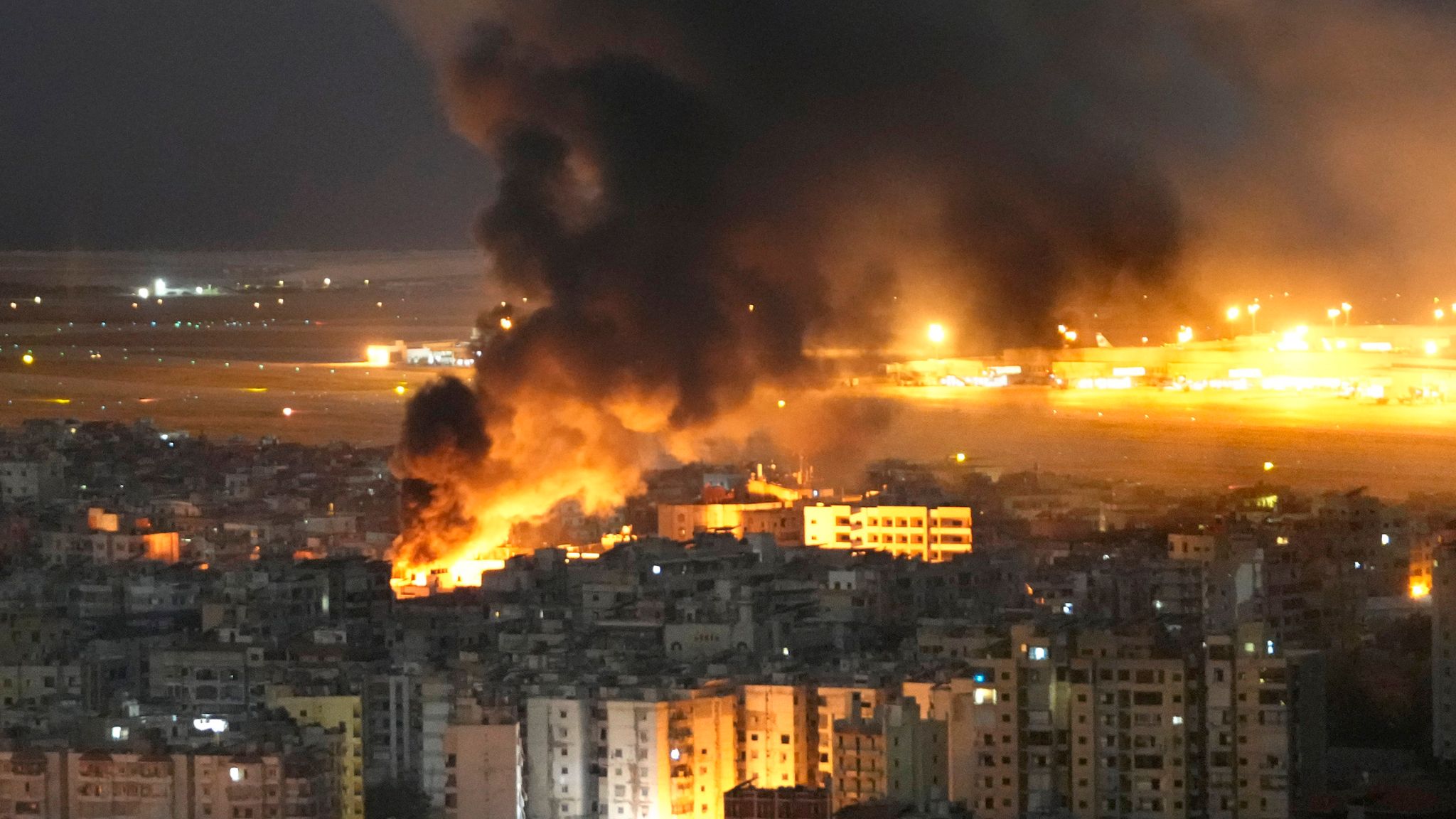Israel mulls ceasefire plan as progress reported
Israel's war cabinet has been briefed on talks over a ceasefire deal in Gaza, after reports of progress made in talks in Paris on Saturday.

It comes as police broke up protests in Tel Aviv calling for Prime Minister Benjamin Netanyahu's resignation.
Riot police on horseback charged demonstrators as they tried to make their way to Democracy Square.
The Paris talks are part of negotiations aimed at securing a ceasefire and the return of hostages.
The deal would also see the release of Palestinian prisoners held in Israel.
On Saturday evening, the Israeli war cabinet was briefed on negotiations in Paris with mediators from Egypt, Qatar and the US.
"We are working to obtain another outline for the release of our hostages," Mr Netanyahu wrote on X.
"That is why I sent a delegation to Paris - and tonight we will discuss the next steps in the negotiations."
Later, it was reported that Israel will send a delegation to Qatar for further talks this week.
Lyse Doucet on the race to reach a ceasefire deal
Anti-government demonstrations were relatively frequent in Israel before the Hamas attacks on Israel on 7 October - the demonstrators' loathing for Mr Netanyahu and his hardline cabinet goes back more than a year.
But Saturday's unrest was the first time since October that police have resorted to tougher measures.
The demonstrators have been spurred on by the war in Gaza - and the fear their government is more interested in defeating Hamas than freeing hostages.
The Justice Ministry has opened an investigation into an incident in which an officer is seen - in a widely circulated video - using the reins of his horse to strike a protester as he fell to the ground clutching his head.
The main opposition leader, Yair Lapid, criticised the police for their aggressive treatment of the demonstrators who gathered outside the headquarters of the Israel Defense Forces (IDF).
The right to protest "cannot be taken from protesters with batons and water cannons," he said.
At least 21 arrests and dozens of injuries were reported.
As well as the anti-government protest, families of the Israeli hostages gathered in the city to call for a diplomatic solution to the war and a focus on their return.
Earlier on Saturday, Israeli media reported progress had been made at talks in Paris on a hostage and ceasefire deal.
Israel's spy chief, David Barnea, met mediators from Egypt, Qatar and the US on Saturday in the French capital.
They reportedly agreed the outline of a deal to form the basis for further negotiations, which was then presented to the Israeli war cabinet on Saturday night.
Israeli media report that the war cabinet agreed to send a delegation to Qatar, where they will continue negotiations on a deal which would see a weeks-long truce and the release of hostages in exchange for hundreds of Palestinian prisoners held in Israel.
But the Israeli national security adviser, Tzachi Hanegbi, said in a televised interview on Saturday evening: "Such an agreement does not mean the end of the war."
A senior Palestinian official with close knowledge of the talks had previously told the BBC that no real progress was made in Paris and accused negotiators of leaking inaccurate information to increase pressure on Hamas.
Hamas has also not commented on the latest reports of progress in reaching a deal.
In his post on X, Mr Netanyahu said he would convene his cabinet this week to approve plans for an operation in Rafah in Gaza's far south, where around 1.2-1.5 million people are crammed into any available space. Increased Israeli air strikes there are already making aid operations more difficult.
Aid agencies and many Western governments have warned that the consequences of an assault on Rafah could be dire.
UNRWA - the UN agency for assisting Palestinian refugees - says it has paused aid deliveries to northern Gaza because convoys are being looted by desperate residents. One of its trucks was also hit by Israeli gunfire on 5 February.
The UN has warned of the growing risk of famine in Gaza, with widely circulated footage showing Gazans in Jabalia in the north queuing for food in desperate conditions.
Local media report that a two-month-old Palestinian boy died from starvation at al-Shifa Hospital in Gaza City on Friday.
The Hamas-run health ministry says at least 29,600 Palestinians have been killed in Israeli strikes, and thousands more bodies are likely unaccounted for under rubble across Gaza.
Israel has vowed to destroy Hamas after the 7 October attacks on southern Israeli communities near the border with Gaza, in which around 1,200 Israelis, mainly civilians, were killed and about 250 others taken hostage to Gaza.
-bbc






